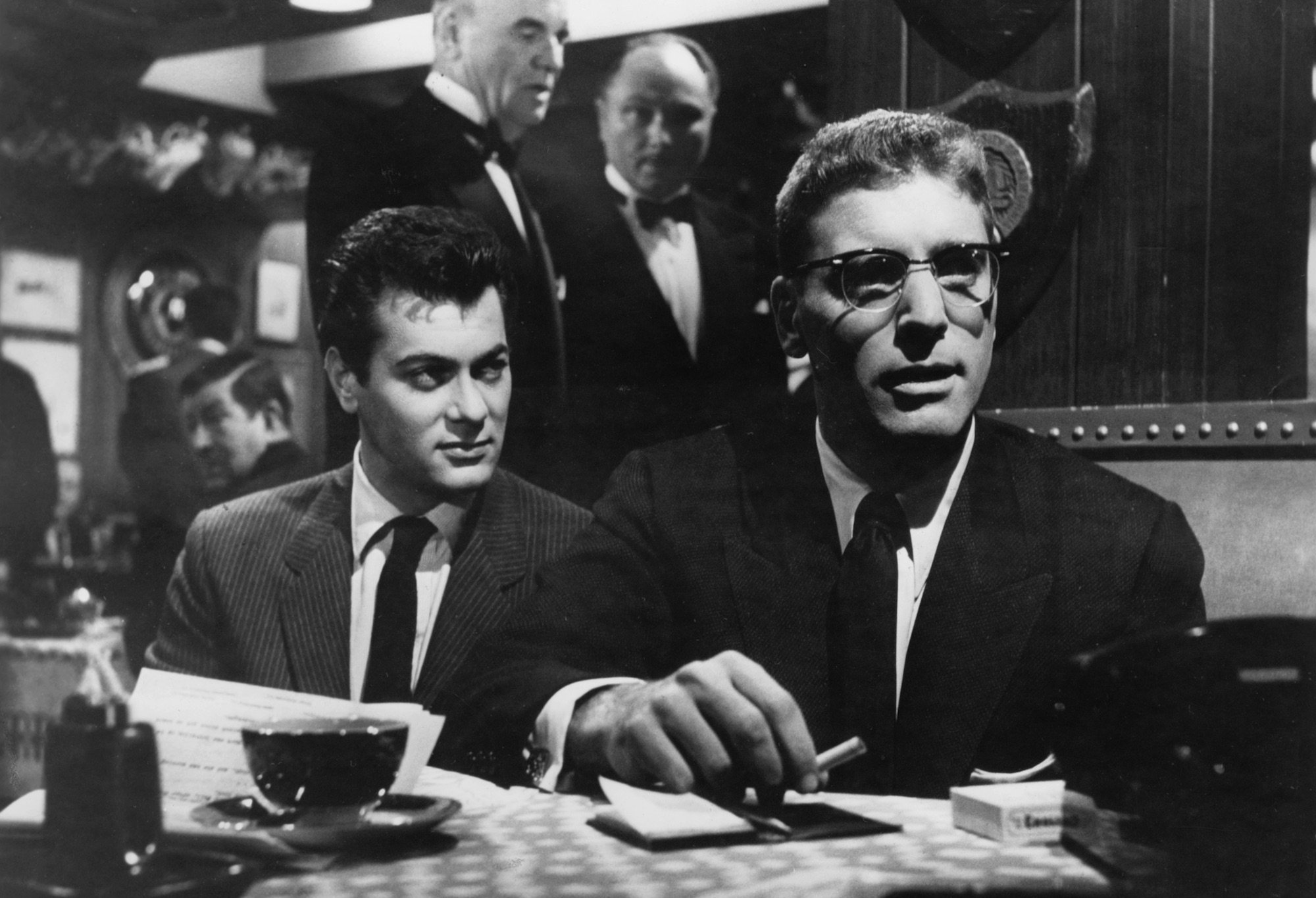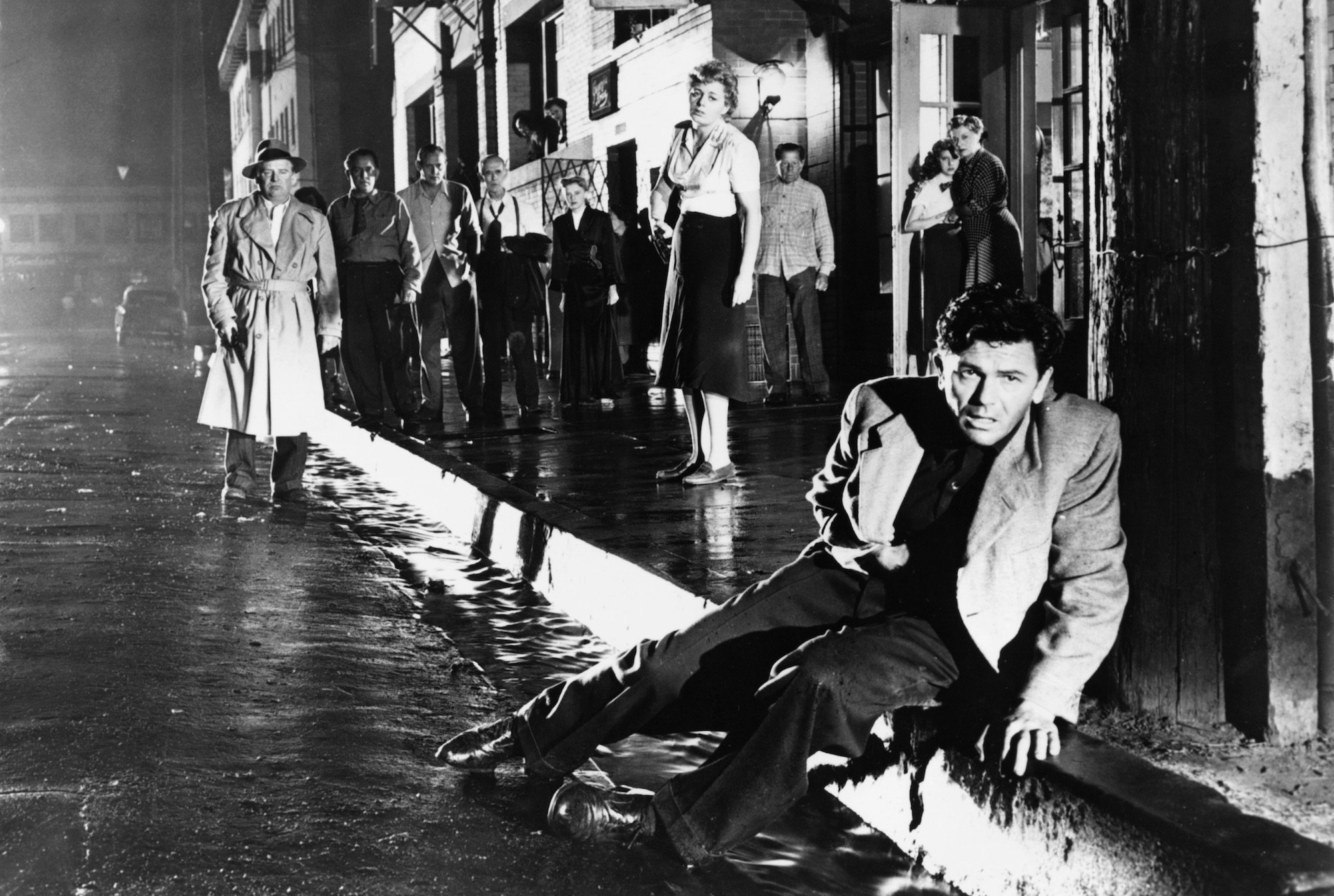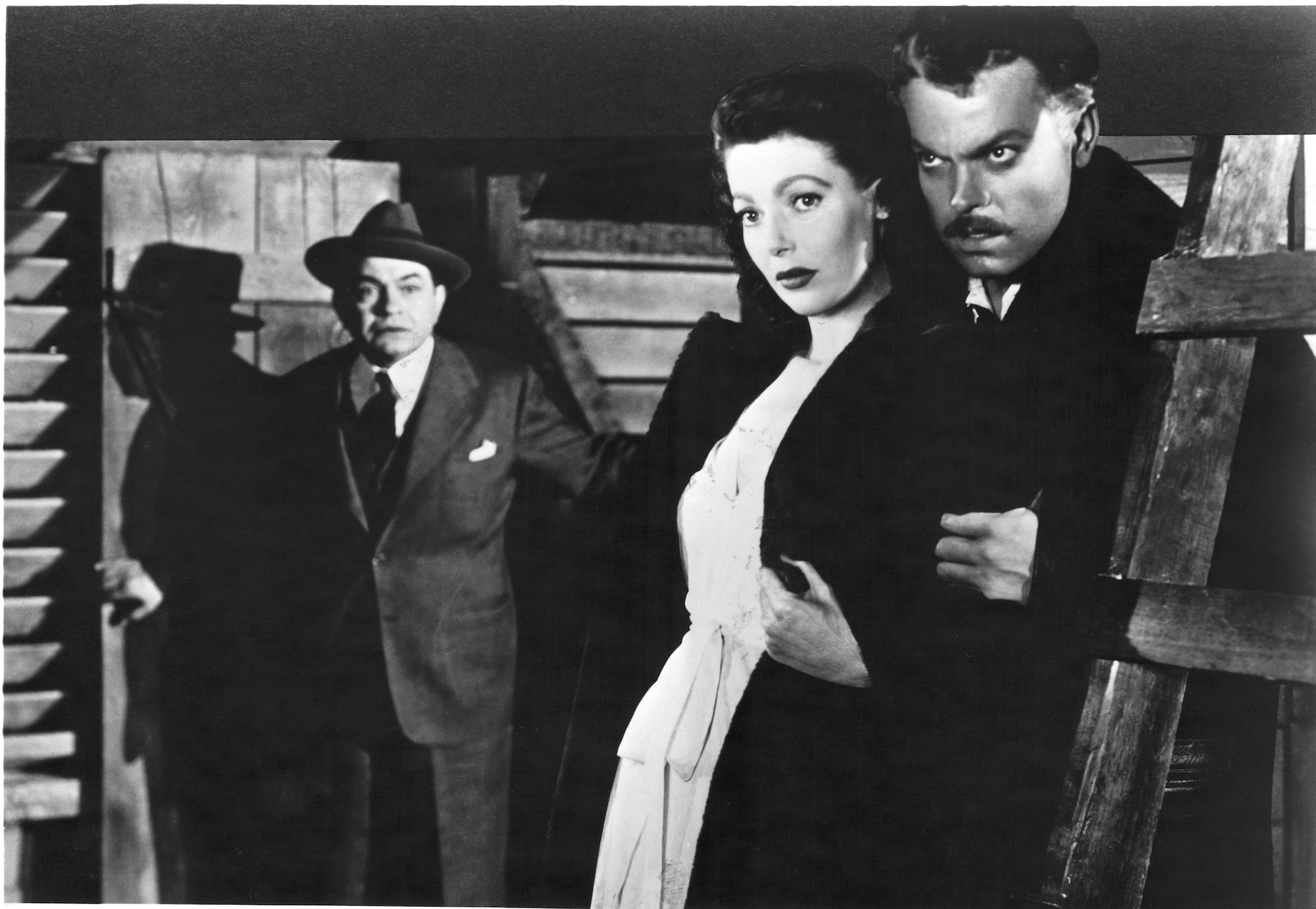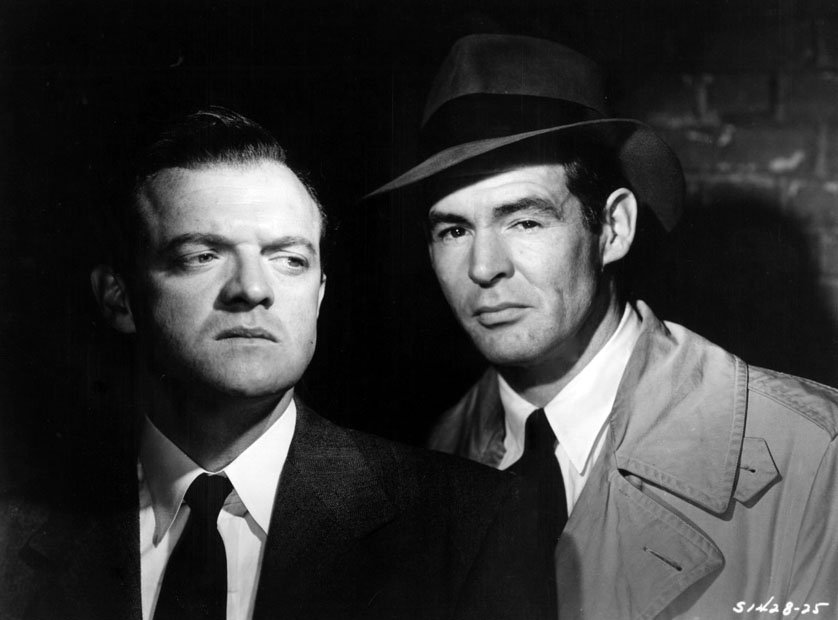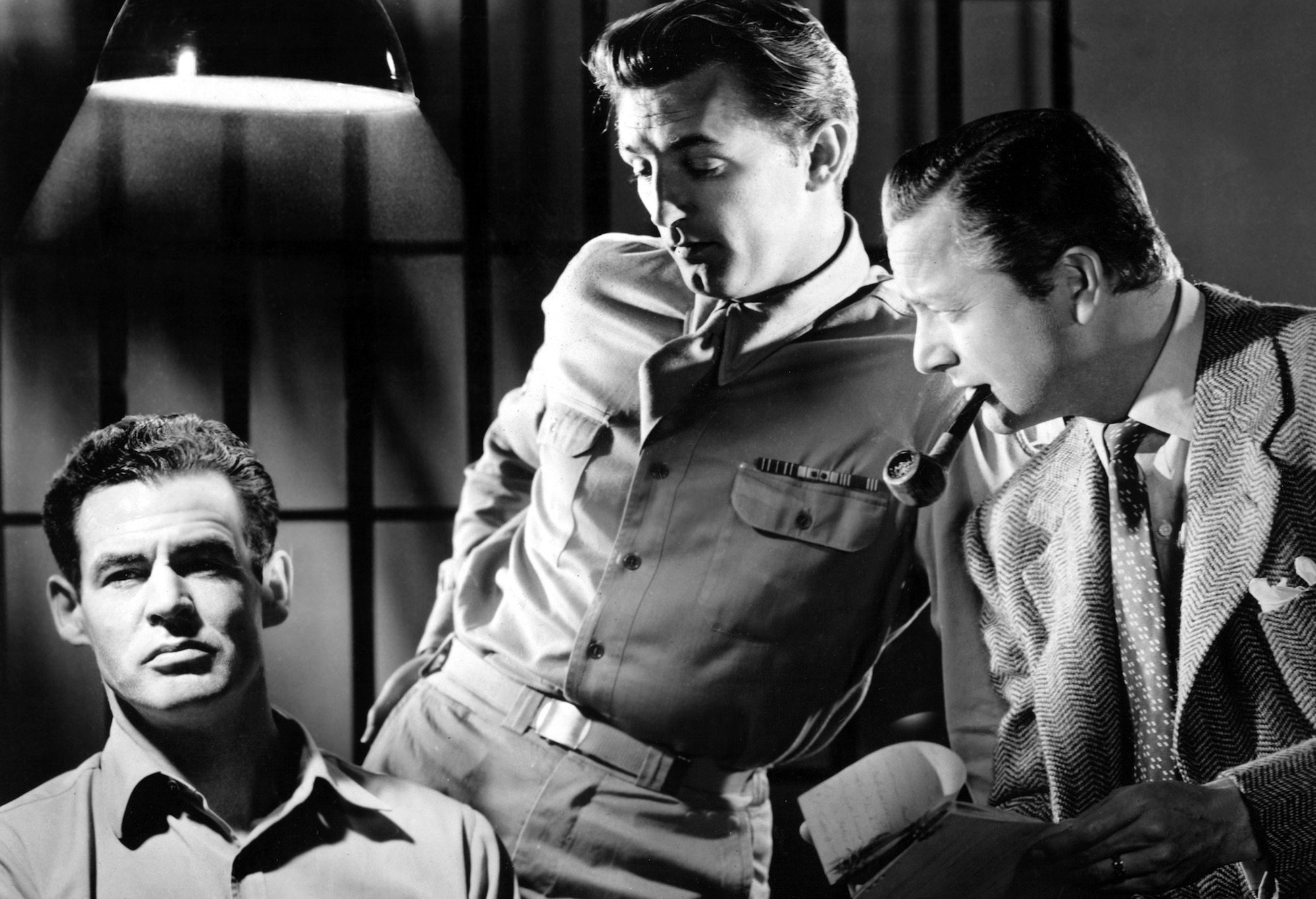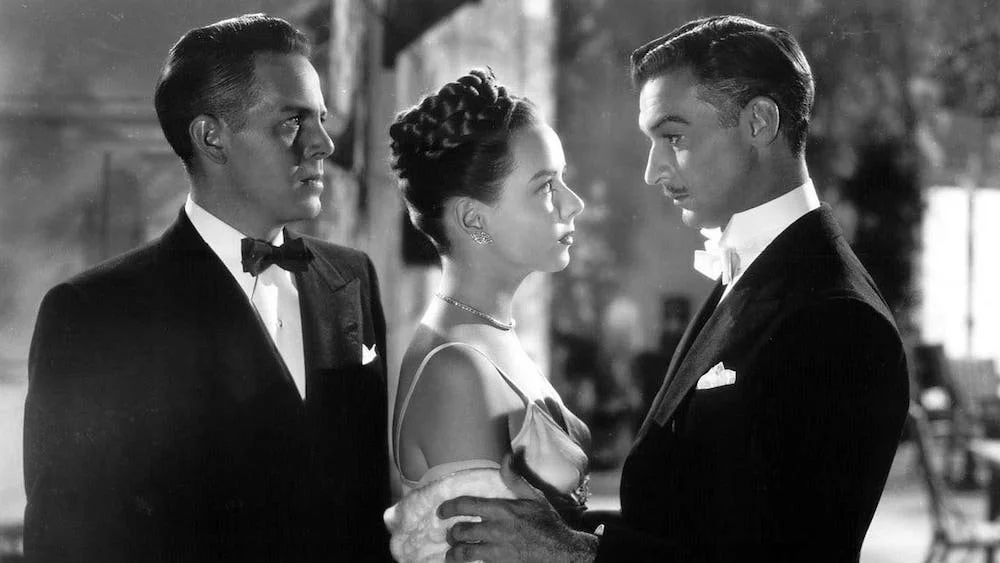Notorious (7 pm)
1946 / 101 mins / b/w
Dir. Alfred Hitchcock / Sc. Ben Hecht / Cine. Ted Tetzlaff
Cast: Cary Grant, Ingrid Bergman, Claude Rains
35mm print courtesy of UCLA
Introduced by Soheil Rezayazdi, Columbia University
"Notorious Woman of Affairs...Adventurous Man of the World!"
When Jean-Luc Godard claimed a certain Notorious filmmaker “invented 80 percent of what is used in Hollywood movies today,” he was referring not to the film’s director, but to its screenwriter, Ben Hecht. Hecht worked on as many as 200 films during his Hollywood tenure, from Josef von Sternberg’s proto-noir Underworld (1927) to the James Bond spoof Casino Royale (1967). He was also an aggressive advocate for the Jewish people during WWII. In the same year as Notorious’ release, his Zionist play A Flag Is Born debuted on Broadway, and in 1944 he organized We Will Never Die, a massive dramatic work dedicated to the Jews murdered in the Holocaust.
Hecht’s passions as an anti-fascist and a consummate entertainer found their ideal union in Notorious, the story of a Nazi hiding in Buenos Aires. Like Adolf Eichmann and other real-life Nazis, the mild-mannered villain of Notorious fled to South America to avoid punishment postwar. The film’s politics play in deep-background to Hitchcock’s more overt interests: a twisted love triangle, slow-burn suspense setpieces, and an overbearing mother figure. The result is perhaps Hitchcock’s most elegant film, one in which every camera move, every object (the key, the teacup, the wine bottle) becomes imbued with meaning. Hitchcock remained far from indifferent, however, to anti-Semitism in the 1940s. One year prior to filming Notorious, he served as an advisor on German Concentration Camps Factual Survey, a long-abandoned documentary that debuted at last in 2014. With Notorious, Hitchcock and Hecht found an ideal marriage between their distinct creative impulses.
The Stranger (9 pm)
1946 / 95 mins / b/w
Dir. Orson Welles / Sc. Anthony Veiller, Decla Dunning, John Huston, Orson Welles / Cine. Russell Metty
Cast: Edward G. Robinson, Orson Welles, Loretta Young
35mm print courtesy of Park Circus
Introduced by Rob King, Columbia University
“The Most Deceitful Man a Woman Ever Loved!”
With The Stranger, Orson Welles returned to directing for the first time in four years, following the twin debacles of The Magnificent Ambersons (1942) and his never completed Latin American documentary It’s All True. His wings well and truly clipped, Welles was hired by International Pictures producer Sam Spiegel on condition that he defer to the studio on all creative decisions. What’s more, Welles’ assigned editor, Ernest Nims, was given authority to cut any material he considered unnecessary to the plot, eventually scrapping over 30 pages from the shooting script.
Perhaps for these reasons, The Stranger has been one of Welles’ most overlooked films, its reputation tainted as a “mere” studio picture. Still, for all his assertion that “there is nothing of me in that picture,” The Stranger shares with other of Welles’ films the relationship between an unknowable, domineering man (here a Nazi war criminal, played by Welles) and an inquiring detective figure (the Jewish actor Edward G. Robinson’s UN War Crimes investigator). The Stranger is also testimony to the anti-Nazi activism in which Welles, Robinson, and screenwriter John Huston had all participated in the years leading up to and during the war. Notably, the film was the first commercial feature to include actual footage of Nazi concentration camps, taken from the Billy Wilder-supervised U.S. War Department documentary, Death Mills. “Everytime you can get the public to look at any footage of a concentration camp, under any excuse at all, it’s a step forward,” Welles later explained. “People just don’t want to know that those things ever happened.”


